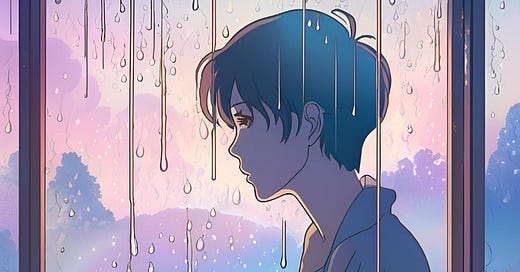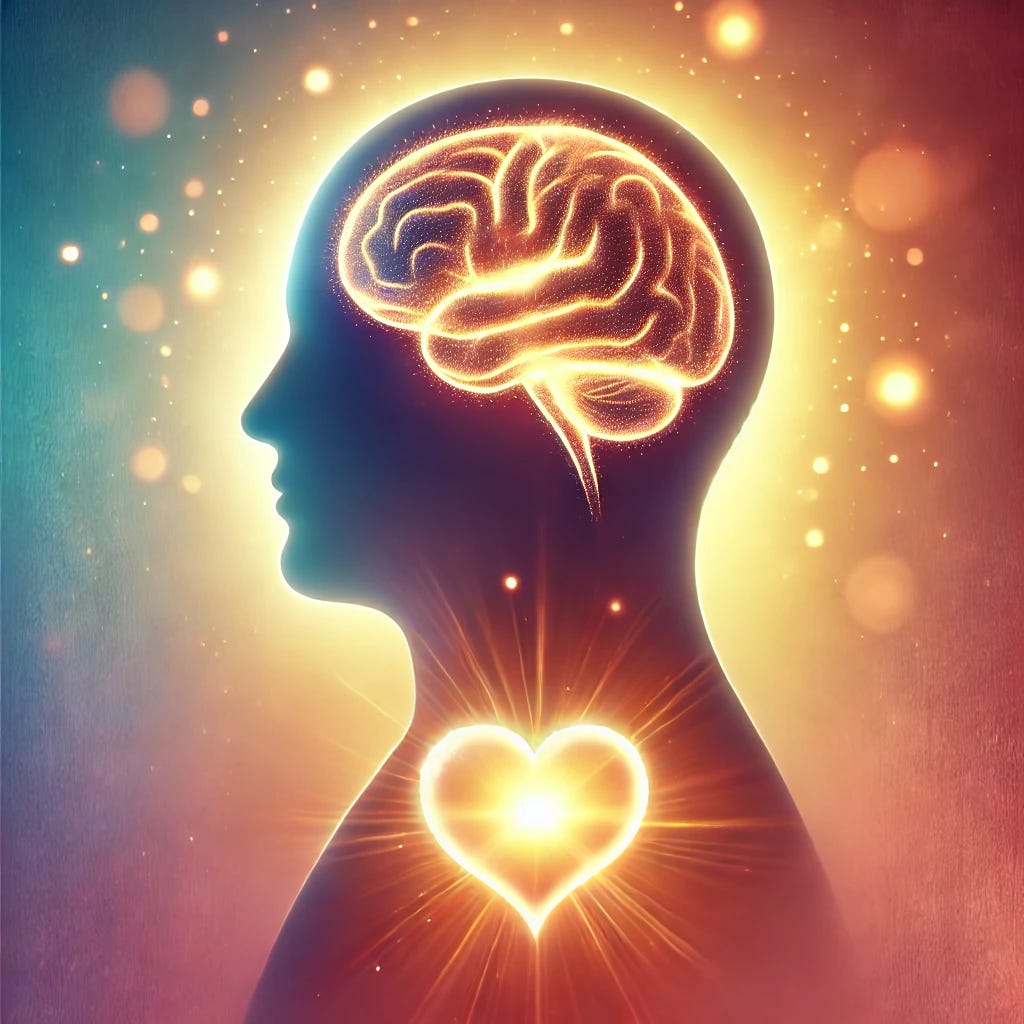What Happened to You? The Question That Could Change Everything
BodyMind Blueprint Installment #1
Dear Adventurers,
Welcome to the first installment of the BodyMind Blueprint theme discussions. Today, we embark on a foundational journey: understanding how trauma impacts the connection between our bodies and minds. Through What Happened to You? by Bruce Perry and Oprah Winfrey, we’ll explore how early experiences influence our nervous systems, shape our health, and affect the way we navigate the world.
Trauma is something many of us carry, whether we’re aware of it or not. It often manifests in patterns we can’t fully explain—perhaps you’ve found yourself reacting strongly to a seemingly harmless situation, struggling with chronic stress, or feeling trapped in cycles of anxiety. These aren’t flaws or failures. They are the echoes of trauma imprinted on our brain and body. Understanding this connection is the first step toward healing.
Trauma isn’t just a single event to “move on” from—it reshapes the brain in lasting ways.
Oprah explains, “The experiences in the first years of life are disproportionately powerful in shaping how your brain organizes.”
When children grow up in chaos or fear, their brains adapt for survival. Perry states, “What is adaptive for children living in chaotic, violent, trauma-permeated environments becomes maladaptive in other environments.” Hypervigilance, emotional shutdown, or people-pleasing may once have been necessary, but in adulthood, these same responses can lead to anxiety, burnout, or difficulty forming healthy relationships.
Consider a child growing up in an unpredictable home, where survival depends on constant vigilance. In school, that same hyperawareness—once necessary for safety—might be misinterpreted as inattentiveness or defiance. Instead of support, they receive labels that follow them into adulthood, shaping their self-perception in ways they don’t even realize.
A relative of mine was repeatedly told they were “bad” and “not good at school.” Over time, they internalized those words, struggling with focus and confidence in tasks that required critical thinking—not because they lacked ability, but because they had been conditioned to believe they weren’t capable. The real issue wasn’t their intelligence; it was that no one asked the right question: “What happened to you?”
This failure to understand trauma’s impact isn’t just personal—it’s systemic. Perry warns, “The pervasive misunderstanding of trauma-related behavior has a profound effect on our educational, mental health, and juvenile justice systems.” When we mislabel survival responses as misbehavior, we don’t just harm individuals—we uphold cycles of punishment instead of healing.
Trauma doesn’t stay in the past—it stays in the body.
When the brain perceives a threat, even one long gone, it reacts as if the danger is still present. Oprah explains, “…since your brainstem can’t tell time, or know that many years have passed, it activates the stress response and you have a full-blown threat response.”
Perry shares a striking example of a boy who panicked around his teacher, not because of anything the teacher had done, but because his cologne and stature reminded him of a past abuser. His brainstem couldn’t distinguish the present from the past, leaving him unable to focus or feel safe.
This constant state of high alert makes trauma survivors more vulnerable to anxiety, addiction, and chronic illness. But awareness is the first step toward healing. Perry reminds us, “Stress is not something to be afraid of or avoided. It is the controllability, pattern, and intensity of stress that can cause problems.”
Healing takes time. It requires patience, self-compassion, and the courage to engage in the process.
Healing isn’t about erasing the past—it’s about creating new, healthier pathways for the future.
Therapy, often misunderstood, isn’t about undoing trauma but rewiring how we respond to it. Perry explains, “Whatever your past experiences created in your brain, the associations exist, and you can’t just delete them. Therapy is more about building new associations, making new, healthier default pathways.”
When I started therapy in 2020, I expected my pain to fade over time. Instead, I learned to name my emotions. Vague feelings of being “bad” or “not great” became tangible emotions like resentment and disillusionment. Naming them helped me face them. Practices like thought-stopping and mindful walks slowly rewired the deeply ingrained negative pathways in my brain.
Connection is another vital part of healing. Perry states, “Your history of relational health—your connectedness to family, community, and culture—is more predictive of your mental health than your history of adversity.”
Ironically, my healing journey began during the COVID-19 pandemic—a time of global isolation. My therapist encouraged me to reconnect in safe, creative ways. Inspired by my inner child, I turned to at-home cosplay and filming TikToks. It felt playful, even silly, but it sparked joy. Over time, excitement and creativity replaced fear and loneliness, proving that healing isn’t just about introspection—it’s about finding ways to feel fully alive again.
Building Your BodyMind Blueprint
Trauma may shape our stories, but it doesn’t have to define them any longer. Healing begins with awareness—acknowledging how our past influences our present. From there, we can take steps to regulate stress, build new neural pathways, and nurture connections that sustain us.
“By taking care of the present you do everything you can to assure a good future”
-Thich Nhat Hanh
My dear adventurers, this is just the beginning of the BodyMind Blueprint journey. Together, we can use compassion, connection, and intentional effort to rewrite our lives' narratives.
What’s one small step you can take today to build your foundation for healing? Let’s take that step together.
A Thought for Your Journey
What is one label or belief about yourself that you’ve carried since childhood? How might compassion help you challenge or reframe it?
Or, If you’d like to support my work in a simple, meaningful way, you can buy me a cup of coffee ☕✨
Healing Roots, Transforming Stories, Cultivating You
Much Love, Jae







